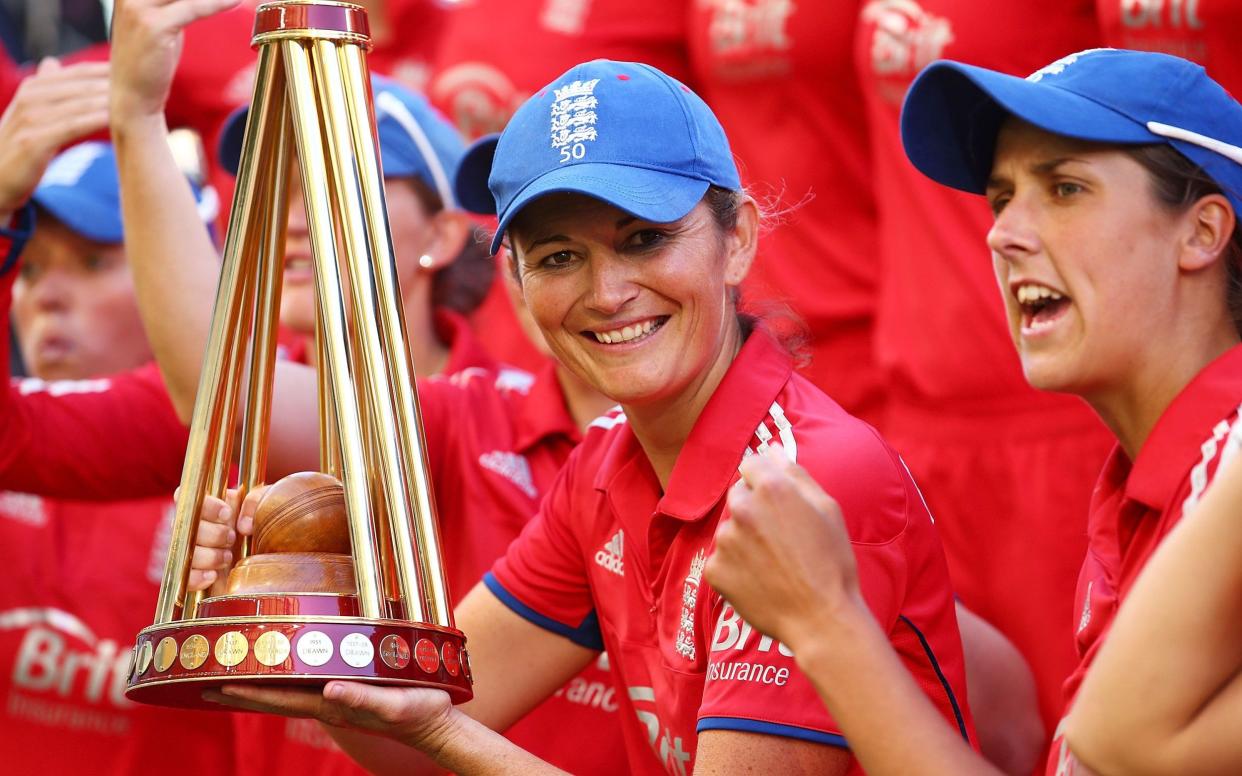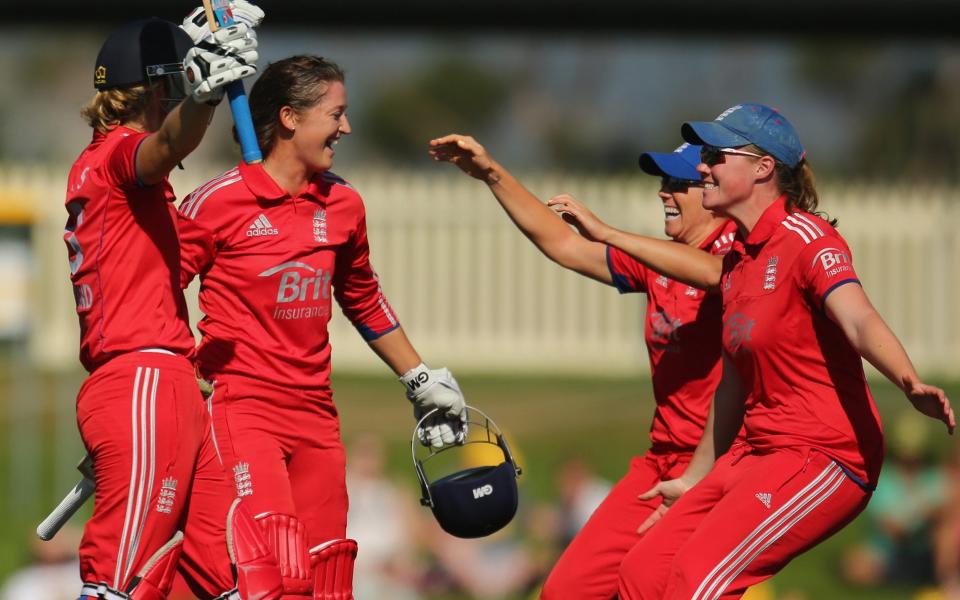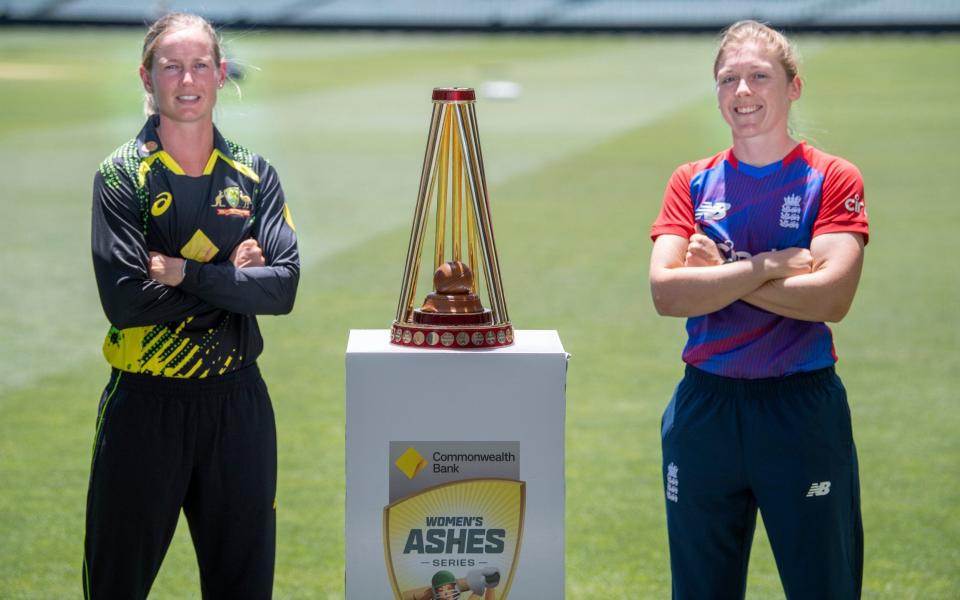Charlotte Edwards: We were falling like flies in 2014, that Ashes win was the highlight of my career

It will be a big ask under difficult, Covid-constrained conditions to replicate the highs of England’s last Ashes win in 2014. But sometimes the greatest victories stem from the most inauspicious of circumstances. While England’s men might refer back to the 2010/11 Ashes tour as the halcyon days of a rapidly fading era, for England’s women it was 2013/14. Not only have England not won an away series in Australia since then, but they have also failed to do so at home.
Charlotte Edwards still cites that win in Hobart as the greatest of her career; it was certainly the most arduous. The memories, she says, continue to burn bright. “We were falling like flies. Everyone was injured,” recalls the captain of that first T20 must-win game. “I remember the game at Hobart really vividly. I knew that we needed to win that first one. Because that was probably it, our last opportunity with something still left of the team. It’s amazing what you can do in those circumstances.”
England’s team had been decimated. Both opening bowlers, Katherine Brunt and Anya Shrubsole, the settled spearhead of England’s attack, had been ruled out of the series. Brunt, who had taken five wickets in the Test, had already flown home with a career-threatening back injury.
On the morning of the match, a hip problem put paid to Shrubsole before Heather Knight was also side-lined with a hamstring injury. Edwards had no choice but to opt for the unconventional. Seventeen-year-old seamer Tash Farrant opened the bowling, alongside spinner Danielle Hazell.
An untested teen carrying the pressure in the battle to win? “Playing in Australia from my experience is about being up for the fight,” says Hazell now. “Lottie was a very passionate captain and hugely respected around the game. She was the best in the world and led from the front.” Edwards did just that, making an unbeaten 92 to steer England to victory, and retain the Ashes. Australia won the final two games, England haven’t come close since.

It was, says Edwards, her greatest victory. “That was my best ever knock for England, in terms of the situation and when it was needed,” she says. “Probably, my biggest achievement as captain. I’ve won World Cups and stuff but to win out there in those circumstances will go down as the highlight of my career.”
The following year, Australia would go on to launch its domestic T20 tournament, the Women’s Big Bash League. Australian women’s cricket was transformed, as the tournament created a new generation of part-time professionals and a depth of talent that no other nation has been able to rival since.
“I think now we are seeing the dominance of Australia's domestic structure and the players they are producing,” observes Hazell. “And the replacement players that are coming in are performing straight away. There is no denying the impact of the WBBL on the women’s game in Australia. It has given more players the opportunity to play against the best from around the world.”
England’s domestic innovations – the debut of The Hundred last summer, and the Rachel Heyhoe Flint Trophy introduced in 2020 – are too recent to reap the rewards just yet. “Our domestic structure is in its very early stages and that will take time to catch up,” says Hazell, now the head coach of the Northern Superchargers in The Hundred. “It is hard to predict [when England will catch up]. But I think you can see how far our structure has come in the last two years that it can only be good for English cricket.”

There are other similarities between this tour and the last victorious one for England’s current crop to turn to. England’s last match in Australia was a bitterly disappointing washout in the semi-finals of the T20 World Cup just before the pandemic hit, which dumped them out of the competition before they had even hit a ball in anger.
Australia swept to victory in the final before achieving a record-breaking 26-match ODI winning streak, ended only late last year by an unexpected Indian victory. This is England’s first pop at the world number one team since.
“We’d had a massively disappointing World Cup in 2013,” recalls Edwards, of a similarly aggrieved England side back then. “We came mightily close to being in that final, where Australia beat the West Indies. That hurt the players a lot. And we had a change of coach as well, where Paul Shaw came in. Shaw was really good at setting up a culture, which he did really, really well.”
This England side may have had head coach Lisa Keightley and captain Knight in charge for a couple of years now, but with fewer fixtures over the pandemic, this is the first big test of their leadership. Hazell, who has played under both Edwards and Knight, says they “demonstrate very similar characteristics”. It would be Knight’s greatest victory, in unlikely circumstances, if she could lead her side to reclaim the Ashes.

